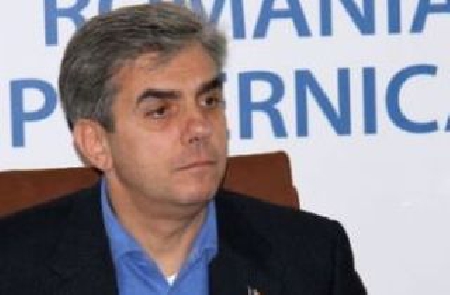Debates over the funding of health-care in Romania
Romanian Health Minister, Eugen Nicolaescu, has announced that private hospitals will no longer get public money, and county hospitals will no longer be subordinated to local officials.

Mihai Pelin, 15.01.2013, 13:25
Health-care has been a chronic issue in Romania for many years now. In the 1990-2012 period, no less than 22 ministers headed the Ministry of Health. Compelled to follow the directions set by their political parties, they took measures that failed to build the foundation that the system needed in order to develop and to serve one interest alone, that of the patient. The new government in Bucharest started the year with fresh, radical measures.
The current Minister of Health, liberal Eugen Nicolaescu, has announced that starting March 1st, when the 2013 frame-work agreement comes into force, private hospitals will no longer get money from the public health insurance funds. He has explained that all public money must go to public hospitals.
Eugen Nicolaescu: “ Social health insurances are compulsory because they represent the solidarity system. Those who want to have their own options, can apply to private insurances. The current law allows people to do that, if they can afford it. 90% of this country’s citizens, though, are poor and they depend on the health insurance system. This is Romania’s problem, our problem, and our job is to solve it.”
Halting the funding of private hospitals from the state budget has raised controversies. As expected, the decision is worrying patients, who claim they have the right to choose from among various suppliers of medical services and are calling for discussions on the issue prior to a final decision being made. In turn, representatives of the Institute for Public Policies say that Eugen Nicolaescu violates the principle of observance of patients’ rights, patients contributing to the health care funds, and is more concerned about fueling a low standard public health-care system.
On the other hand, the State Secretary with the Health Ministry, Raed Arafat, the one who a year ago had a dispute with president Traian Basescu over the health-care reform, has made it clear that, although private hospitals get money from the state, the most complex medical cases are treated in the public hospitals. In his opinion, private hospitals should be funded from private or complementary insurance systems, not from the social insurance fund. Arafat has explained that the money that will no longer go to private units will be used to finance the 53 strategic hospitals in Romania, which deal with over 70% of the most serious medical cases in the country.
Moreover, funds will be created for several programs, for the physicians involved in them to no longer be forced to ask their patients to buy medicine and supplies with their own money, the State Secretary added. The main issue, though, remains the chronic under funding of the health-care system as a whole. Romania is the country with the lowest percentage of the GDP allocated to health care — 5 % in Europe – as compared to countries like the USA with 17.5%, the Netherlands and France with about 12% or Germany with 11.5%.






























